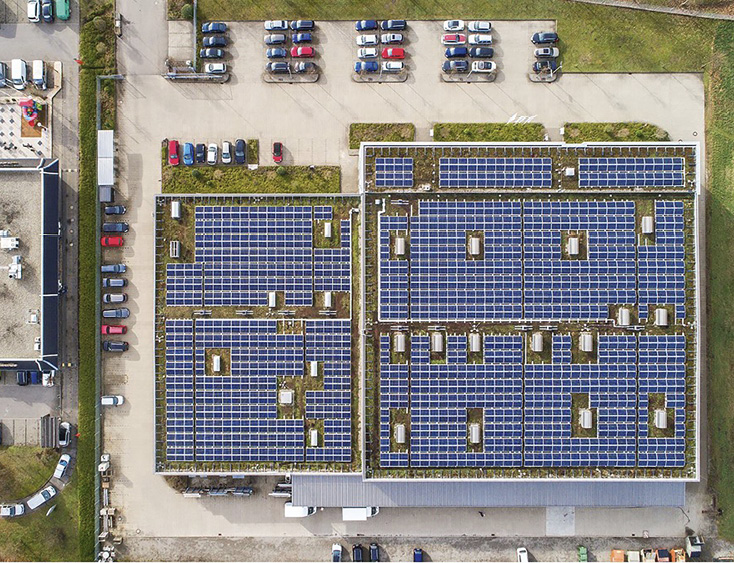This morning the European Council in Brussels announced it had adopted a suite of measures under the banner of the Renewable Energy Directive which is part of legislation, passed in June, meaning all European Union (EU) member states must contribute to the EU’s common goal of 45% renewable energy use by the end of the decade.
The new rules aim to target sectors where renewable energy integration has been “slower,” the EU Council press release states, including transport, industry and buildings. Some sector rules include mandates while others include options.
For transport, the member states can opt to aim for a binding target of 14.5% reduction of greenhouse gas intensity in the use of renewables by 2030, or a binding share of at least 29% of renewables within the final consumption of energy by 2030, the press release states.
For industry, member states will increase renewable energy use by 1.5% per annum and also “have the possibility” to discount the contribution of renewable fuels of non-biological origin (RFNBOs) by 20%. They can do this if their national contribution to the binding overall EU target meets their expected contribution, or their share of hydrogen from fossil fuels consumed is no more than 23% in 2030 and 20% in 2035.
The new rules for buildings, heating and cooling stipulate there is an “indicative target” of at least 49% target of renewable energy use in buildings by the end of the decade. The press release states that targets for heating and cooling would “gradually increase.”
Permitting procedures for renewable energy projects will also be sped up, with their deployment “fast-tracked” to help achieve the targets. Member states will identify areas worthy of acceleration and renewable energy projects will undergo a “simplified” and “fast permit-granting” process. The renewable energy projects will also be presumed to be of “overriding public interest” which will “limit the grounds of legal objections to new installations.”
The directive also strengthens the sustainability criteria for the use of biomass energy while aiming to reduce the risk of “unsustainable” bioenergy production. “Member states will ensure that the cascading principle is applied, with a focus on support schemes and with due regard to national specificities,” the press release states.
Spanish Acting Minister for the Ecological Transition, Teresa Ribera, described the new rules as a “step forward” that allow the EU to pursue its climate targets in a “fair, cost-effective and competitive way.”
The “general context” created by Russia’s invasion of Ukraine and the effects of the COVID-19 pandemic has led to a surge in energy prices across the EU, which has highlighted the need to accelerate energy efficiency and increase the use of renewable energy, the original European Council documents state.
“In order to achieve the long-term objective of an energy system that is independent of third countries, the Union should focus on accelerating the green transition and ensuring an emission-reducing energy policy that reduces dependence on imported fossil fuels and that promotes fair and affordable prices for Union citizens and undertakings in all sectors of the economy.”
In March all member states in the European Parliament voted in support of the measure except Hungary and Poland voting against and the Czech Republic and Bulgaria abstaining.
This content is protected by copyright and may not be reused. If you want to cooperate with us and would like to reuse some of our content, please contact: editors@pv-magazine.com.



4 comments
By submitting this form you agree to pv magazine using your data for the purposes of publishing your comment.
Your personal data will only be disclosed or otherwise transmitted to third parties for the purposes of spam filtering or if this is necessary for technical maintenance of the website. Any other transfer to third parties will not take place unless this is justified on the basis of applicable data protection regulations or if pv magazine is legally obliged to do so.
You may revoke this consent at any time with effect for the future, in which case your personal data will be deleted immediately. Otherwise, your data will be deleted if pv magazine has processed your request or the purpose of data storage is fulfilled.
Further information on data privacy can be found in our Data Protection Policy.